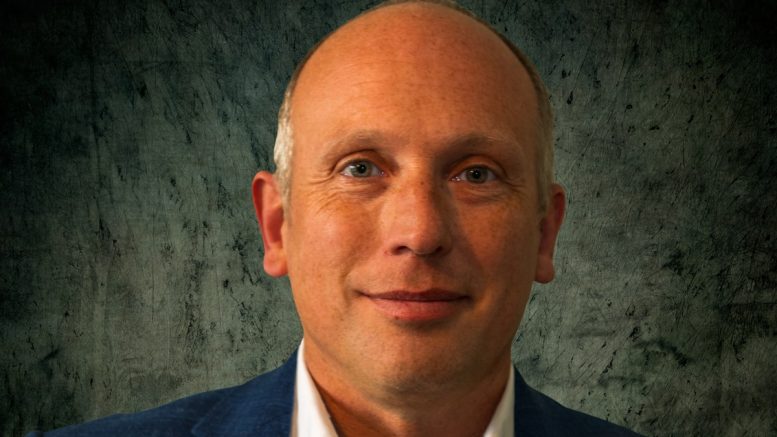What challenges do MedTech companies face when introducing their solutions to the NHS?
We often find that MedTech companies don’t understand what their value is to the NHS. At Health Analytical Solutions, we help them navigate the process of delivering a solution for the health service that it will value, building the relationship beyond that of simply a supplier.
Health services tend to – understandably – be extremely risk-averse and cautious. MedTech companies need to demonstrate significant compliance with high standards of care over long periods, as well as demonstrating a solution is materially more beneficial to a patient than the current standard of care (SOC). MedTech can act as a bridge between overworked health services that are struggling to cope with ever-increasing burdens from an ageing population and have the potential to completely change how healthcare is provided.
How important is achieving Drug Tariff status for MedTech companies?
On a monthly basis, NHS Prescription Services produces a Drug Tariff on behalf of the Department of Health and Social Care. This is supplied primarily to pharmacists and GP practices and outlines what will be paid for NHS services that are provided for reimbursement or remuneration. For MedTech businesses, who are developing products to be used outside of the hospital, getting approval to be included on the Drug Tariff is a critical step in enabling widespread adoption of their product within the UK health system.
In the past there was often a situation where – if a company could tick some boxes to demonstrate the ability to help address medical conditions, the company could achieve Drug Tariff status. However, this has changed now and is more in line with a HTA Health technology Appraisal process, which has a high barrier to entry.
What do companies need to consider when preparing to submit Medtech products to the Drug Tariff in the new world?
MedTech companies need to have all the right information and insight available right from the start as there are always things you don’t see coming. As a result, that requires us to work with companies to generate new information quickly to avoid slowing the process.
The metaphor I use is that this process is like an expedition. Companies need to be fully prepared. It’s not helpful to get halfway up a mountain and find you’re missing a key piece of equipment. Companies can save time and money by being fully equipped with the right information before embarking on NICE or Drug Tariff submissions. The challenge is that Drug Tariff often changes what is required, so flexibility and being agile is key.
What is an example of an innovative MedTech device you have previously worked with?
Since founding Health Analytical Solutions, we have worked on over 140 medical devices, I have had the opportunity to work with numerous Medtech devices helping them to access the NHS market. During this time, one innovation that has stood out is the geko™ device. Developed by Sky Medical, it is a wearable, battery-powered device that is the size of a wristwatch and worn at the knee. Using Sky Medical’s patented OnPulse™ technology, the geko device gently stimulates the common peroneal nerve activating the calf and foot muscle pumps, resulting in increased blood flow in the deep veins of the lower leg equal to 60 percent of walking without a patient having to move.
The geko™ device is NICE approved for unmet need VTE prevention, when standard of care cannot be prescribed, and is clinically proven to prevent life-threatening blood clots, accelerate wound healing (leg ulcers), and is indicated to treat and prevent pre and post-operative oedema.
Last year, the International Wound Journal published the company’s multi-centre randomised self-controlled trial (RCT). The study compared SOC with and without the geko™ device in patients with VLUs, while demonstrating an acceleration in the rate of healing by more than double in patients treated with the geko™ device versus SOC alone.
How did Health Analytics Solutions demonstrate the cost-effectiveness of the geko device?
The use of the geko™ device in addition to SOC has a significant positive outcome, so this enabled us to build an economic model using NHS data. We were able to establish quite quickly that any NHS Trust using this device would make savings in this therapeutic area.
Much of the cost saving was around hard-working district nurses, who regularly visit VLU patients. With the workforce being reduced by nearly 50% over the last decade, supporting them presents a huge benefit to the system. A further saving was on consumables such as compression bandages.
My team helped Sky Medical devise a strategy where clinicians could assess – after 28 days – whether a VLU was on the right trajectory to heal or not. Where patients were either experiencing very slow healing or no healing at all, the geko™ device could have a significant impact on health economics instantly. We could be talking of a reduction of several weeks in healing time. With a district nurse visiting two or three times per week at a cost of £40 a visit, the benefits of the product quickly add up.
What does the future of MedTech look like in the NHS and the wider healthcare industry?
Everyone knows the challenges caused by the ageing population and the backlogs in treatment. I think the waiting lists will continue to grow towards eight million, but I’m excited that healthcare driven by technology and – particularly – Artificial Intelligence (AI) can help address future challenges.
AI will certainly help to reduce human resources looking at X-rays, scans and the like, helping radiologists reduce their workload. In the next two decades, we are going to see some radical changes in line with the biggest seismic shifts in healthcare ever to take place. Imagine the impact AI could have around some of the world’s biggest health challenges such as cancer, neurological conditions, diabetes and many others.
By Richard Tuson CEO and founder of Health Analytical Solutions



